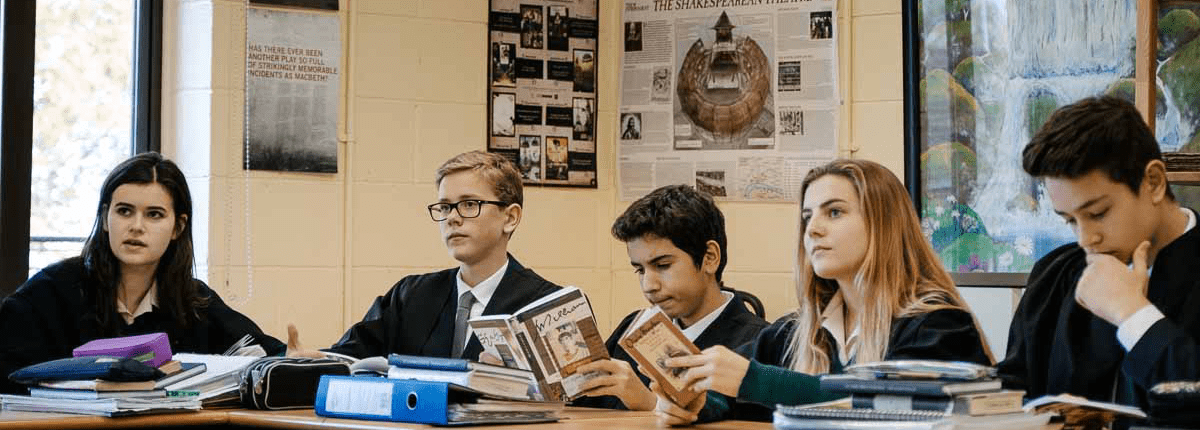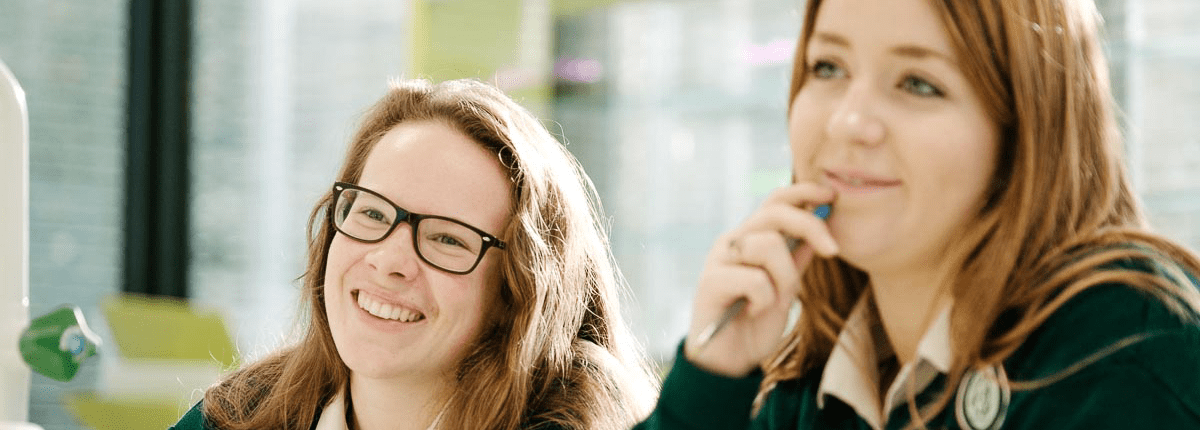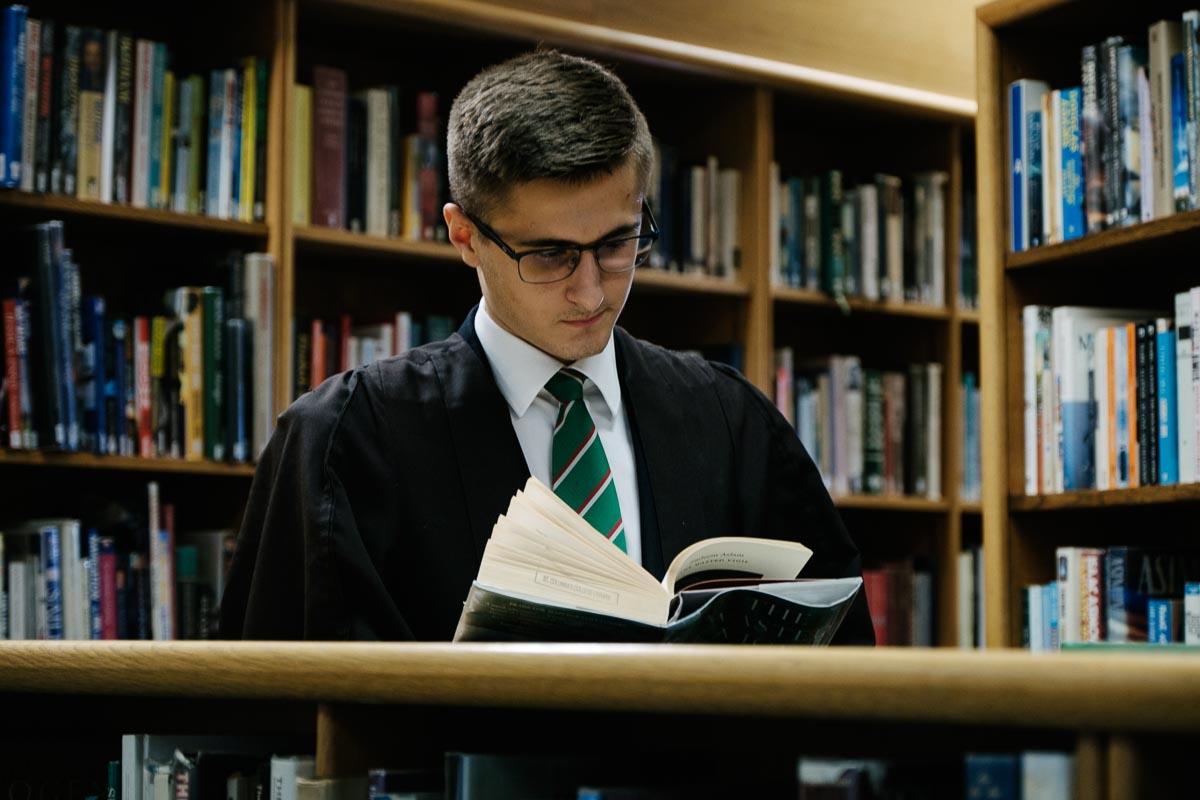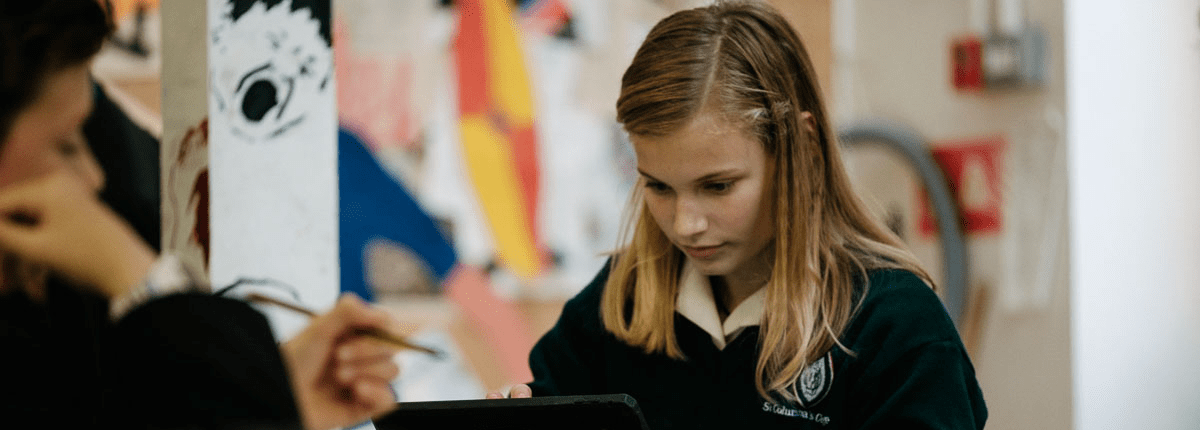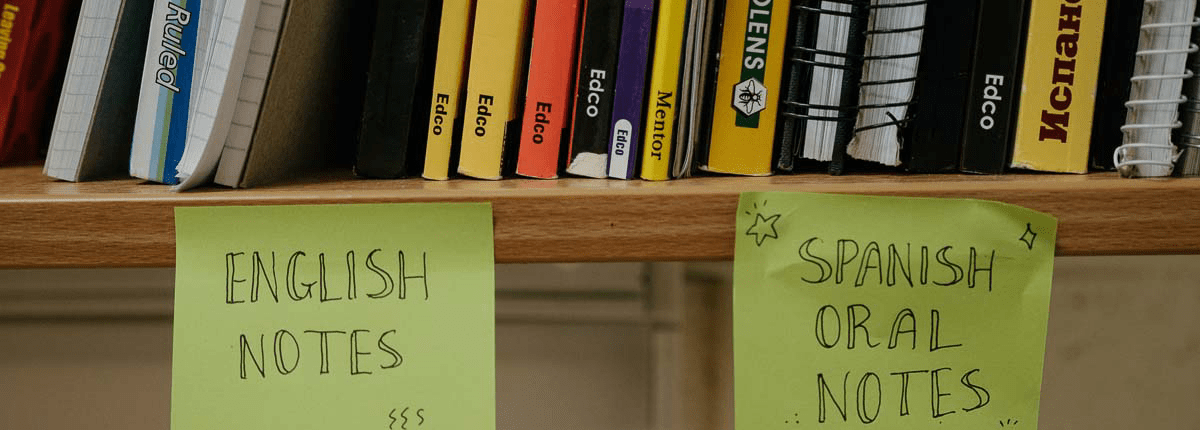St. Columba’s College takes justified pride in its academic standards and achievements. Since its foundation in 1843, the College has sought to inspire in its pupils a love of learning and a scholarliness to match that of its titular saint, Columba. Now, in its third century as an institution of study, the College enjoys a reputation for academic results which are among the very best in Ireland and the British Isles generally.
The curriculum is determined by the NCCA with pupils preparing for their Junior Cycle exams in Form III and their Leaving Certificate in Form VI. More information on the subjects available in these programmes are found below.
Contact with parents is maintained by a variety of means, both written and verbal. Regular meetings with parents take place during the year when all subject teachers discuss pupils’ individual progress with parents. From time to time, such meetings are also arranged on an ad hoc basis. In addition to this, detailed reports are written by teachers for every subject up to three times each year, at the end of term examinations. Finally, pupils are given effort grades in every subject approximately every three weeks in term, and details of these are sent electronically to parents at the end of each term. By these means, the College is able to monitor closely the progress of all its pupils and to intervene positively where results are not commensurate with an individual’s ability.
St. Columba’s is proud of its academic achievements and is committed to the continued pursuit of excellence for all its pupils in the years to come.
Teachers & Facilities
Crucial to our achievements in the academic field are our teachers. Dedicated and devoted, our teachers are subject specialists with impressive qualifications and many years of experience teaching to the highest standards. Unstinting in their willingness to give time to their pupils on an individual as well as a collective basis, they work long hours to ensure that our pupils are stimulated and challenged by their lessons during the day and studies in the evenings and at weekends.
Significantly, especially in a boarding school, more than half of our teaching staff are resident in the school grounds. This allows them to work with their charges outside the classroom as well as in it, and it also adds significantly to our sense of a scholarly community working together for the common good.
Facilities for study at St. Columba’s are second to none. Almost all teachers have dedicated classrooms internet connection and digital projectors. There is a campus-wide computer network which is wireless and supported in part by cabling. All pupils have desks in their dormitories and the College Library is, we believe, unsurpassed anywhere in Ireland both as a place to work and a learning resource. It is open daily from 8.45am until 10.00pm. Each evening, sixth form pupils take their prep in this beautiful and spacious location. There are around 11,000 books on display and the College enjoys and promotes a strong reading culture among the pupil body. There is a full-time qualified Librarian.
The College benefits from the smallest class sizes of any secondary school in Ireland. In Forms I, II & III, we average 15 pupils per class and in Forms IV, V & VI, the average is around 13. Our pupil / teacher ratio is an enviable 8:1, thus reinforcing our desire to give individual attention to all.
Curriculum & Form Structure
The curriculum for each subject is set down by the Department of Education and is administered by each academic department as outlined in their department submission.
There are three forms in the junior school: Form I, Form II, and Form III. Form IV (the Transition Year), Form V and Form VI make up the senior school.
Form I
Our main point of entry from Irish Primary Schools. Pupils sit an assessment in English and Maths in March prior to the year of entry. Subjects covered in Form I are: English, Maths, French or Spanish, Irish (unless exempt), History, Geography, Science, Computer Studies, Art, Music, Graphics, Religious Education (RE), Social, Personal and Health Education (SPHE), Physical Education (PE). Additional English and Maths are taught to those exempt from Irish.
Form II
Subjects covered in Form II: English, Maths, French or Spanish, Irish (unless exempt), History, Geography, Science, Computer Studies, SPHE, RE, Business Studies, Civic, Social and Political Education (CSPE), PE plus a choice of Art/Music/Graphics and Classics/modular courses in a choice of areas such as Artistic Performance, Philosophy or Coding. Support English and Maths are taught to those exempt from Irish on grounds of a learning difficulty.
Form III
This is the year in which all pupils sit the Junior Cycle in a range of subjects, mostly at Common Level although some subjects have a Higher or Ordinary level. The following subjects are timetabled (some are optional):
English, Maths, French or Spanish, Irish (unless exempt), History, Geography, Science, Business Studies, SPHE, RE, CSPE, plus a choice of Art/Music/Graphics and Classics/modular courses in a choice of areas such as Artistic Performance, Philosophy or Coding.
Form IV (Transition Year)
Transition year in St Columba’s College is compulsory. The year involves a balanced approach to academic and extracurricular activity and our programme is designed to allow our pupils to mature in a safe and challenging environment.
Our TY programme is strenuously academic as we believe this is the best way to prepare our pupils for their Leaving Certificate courses.
In tandem with proper academic work pupils participate in a wide range of extracurricular activities. Work experience programmes are undertaken during holiday periods while during term pupils attend career-oriented courses such as the RCSI Mini-Med programme and the Law Library course.
There are ample opportunities for pupils to present their thoughts and work in front of a public audience at events such as TY Debates, House Speeches, TY Modern Languages Evening, TY Academic Prize and many others.
Our Columban Award Scheme challenges pupils to complete physical and charitable tasks and so gain a CAS certificate. The Spirit of Transition Year cup is awarded to the pupil who best exemplifies that spirit.
The year finishes with an outdoor adventure trip to Achill Island.
Form V & VI
In these two final years, pupils study for the Leaving Certificate, the national examination which is taken in June of the Sixth Form. The Leaving Certificate is more broadly-based than its British equivalent, ‘A’ levels, but shares much with Scottish ‘Highers’. It has achieved a high international reputation in recent years. Most pupils study seven subjects, which can include both arts and sciences, and can be taken either at Higher or Ordinary level.
In St. Columba’s, pupils must choose English, Maths, French or Spanish and Irish (unless exempt), and then are able to select from these additional, examined subjects: History, Geography, Biology, Chemistry, Physics, Business, Economics, Art, Classical Studies, Music, Design and Communication Graphics.
Pupils also have one period of RE and SPHE a week and, depending on their main subject choices, may select one of the following to study for two periods per week: Accounting, Applied Mathematics, History of Art, Computer Studies, PE, Recreational Art.
If applying for Irish third-level Colleges, six of the examined subjects above count towards ‘points’ in the national system run by the Central Applications Office. Places in Colleges and Universities are allocated centrally, successful applicants being those who achieve or exceed the relevant ‘points’ tariff for a particular course.
If applying for UK third-level Colleges, pupils enter the UCAS system. Our Guidance Team help all Form VI pupils to complete their forms, aided by a specially appointed individual academic tutor. It is worth pointing out that a majority of Columbans choose to send applications through both systems and make their final choice after they receive their Leaving Certificate results. Using two systems does, of course, provide a very broad range of opportunities. The school also supports applications to the US, Europe and third-level institutions further afield.

